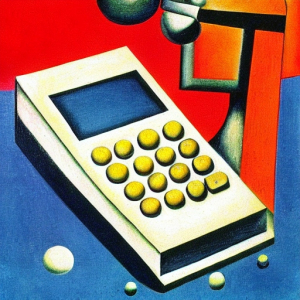A calculator for math class, ChatGPT for english class
By Ben Newman
When technology replaces a human skill, two things happen.
1. We shift what we consider a valuable skill
2. We are empowered to push the boundaries of what we know.
Teachers know this well.
Before the calculator, teachers taught students to do complex math by hand because it was a necessary skill. The calculator made the mechanics of math easy, allowing students to explore higher level concepts. Automatic calculating tools have contributed to the explosion in stem-related work in the last 50 years.
With spellcheck, everyone was given access to proper spelling and grammar. We shifted towards a greater emphasis on iterative writing and research. These things arguably matter more than formula.
Few lament the calculator as the end of mathematics or spellcheck the end of good writing. These tools satisfy the routine tasks fast so we can explore greater swaths of the unknown. They haven’t even replaced the importance of numeracy and understanding proper grammar.
The alarm bells are ringing as education views ChatGPT as a looming threat to writing. Instead, we should view it through the lens of the calculator: how can AI make writing better?
In talking to philosophy professors, TA’s and AI ethicists, I think the the future may be promising. Among many things, AI can be a coach, helping students organize thoughts, create outlines and use better sentence structures. By coaching students through good writing, it allows them to focus on the higher order issues of exploring, questioning and forming hypotheses.
Remember, AI can’t come up with a novel thought: students still have to push the boundaries of ignorance.
Good writing isn’t going anywhere fast, although it will be easier to look like a good writer. Like the calculator or spellcheck, students will need to understand good writing to use their tools well. And most of all, they will have to become good question askers and explorers.



